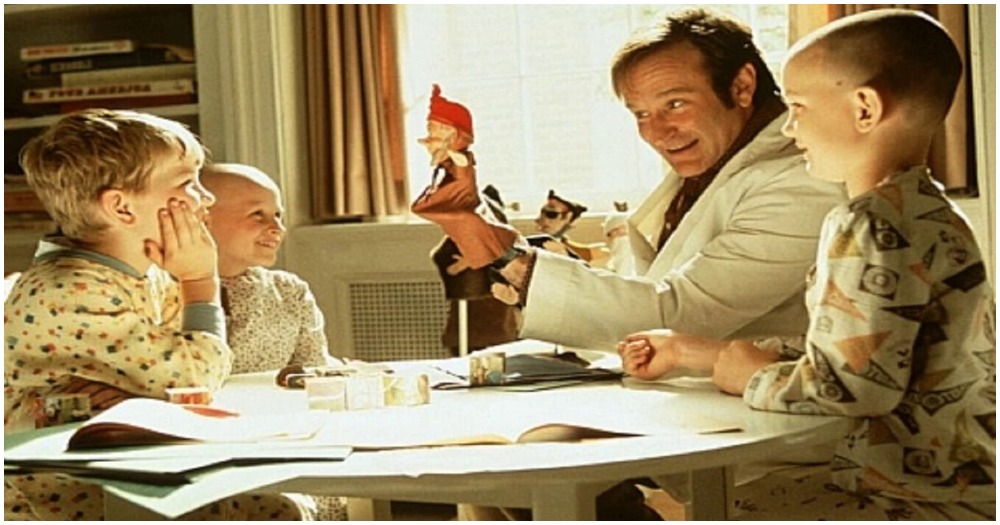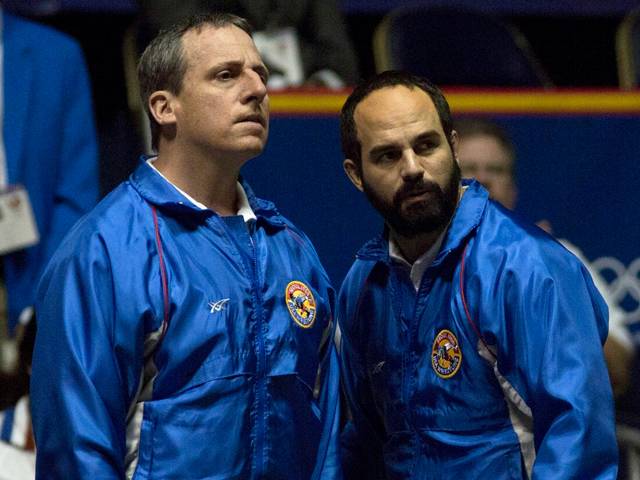
11. The Experiment

The 2001 film The Experiment was based on the infamous Stanford prison experiment, which had participants play the roles of prisoners and guards in an attempt to shed light on the psychological effects of power over others. The results were not pretty, as the “guards” wasted no time in lording their authority over the “prisoners,” subjecting some of them to psychological abuse and humiliating punishments like cleaning toilets and peeing in buckets. The man running the experiment, psychologist Phillip Zimbardo, allowed this to continue for six days before calling it off at the insistence of his (very sensible) girlfriend. The experiment pushed the boundaries of ethics—but never did devolve into brutal violence and rapes, as depicted in the film.
Zimbardo, president of the American Psychological Association at the time of the film’s release, was not happy. “It makes Stanford and me and psychology look bad,” he said, noting that audiences tend to accept film versions of historical events as accurate and that the film fails to even explore the real experiment’s purpose. The filmmakers employed the “hey, nobody said this was supposed to be accurate” defense—which is a little suspect considering the film opens with the words, “inspired by incidents that occurred during a psychological experiment at Stanford University.” Hey, if filmgoers don’t know that “inspired by” means “bears zero relation to,” it’s their own fault!
12. Captain Phillips

Tom Hanks—everybody loves him, we’ve covered this. Everybody, that is, except for the crew of the Maersk Alabama, the shipping vessel hijacked by pirates in an event dramatized by the 2013 film Captain Phillips. In the film, Captain Richard Phillips (Hanks) has his ship boarded by pirates, managing to heroically outwit them and force them to leave on a lifeboat, which is complicated when they turn the tables at the last minute and force Phillips onto the lifeboat with them.
Much was made in the film of Phillips’s close adherence to the protocol: running anti-piracy drills, sticking only to approved waters, and going by the book once his vessel was boarded. But a lawsuit filed against the shipping company by the Maersk Alabama’s crew tells a slightly different story: Phillips, they say, was a sullen, arrogant man who never ran a single drill and absolutely insisted on cutting through known pirate-infested waters to save time, despite the pleas of his crew. Moreover, many crew members expressed the opinion chief engineer Mike Perry, who had only a small part in the film, was the real hero of the incident—he attacked and detained the lead hijacker at one point, trying to use him as a bargaining chip to secure Captain Phillips’s release.
Nine crew members filed a lawsuit against the shipping company upon their return home. It was settled out of court with undisclosed terms but had the effect of scaring the entire shipping industry straight. New safety regulations and procedures were quickly implemented in 2013 as a direct result of the suit, and go figure: in 2014, the number of attacks by Somalian pirates stood at 0, saving the industry billions. It’s almost as if giving the slightest damn about employees is good for business.
13. Everest

In 1996, eight climbers died while climbing trying to climb Mt. Everest in an infamous incident that was immortalized in the 1997 book Into Thin Air by Jon Krakauer, a writer and world-class climber who survived the ill-fated trek. Many assumed that the 2015 film Everest was based on Krakauer’s book, but it wasn’t. He sold the film rights to Sony the same year of the book’s release, resulting in a crappy TV movie that nobody watched. In fact, Krakauer wasn’t even consulted by the producers of Everest or the actor (Michael Kelly) who played him, which he thinks is because director Baltasar Kormákur personally has it in for him—and judging by the way he’s portrayed in the film, he might be right.
Krakauer’s main issue is with a scene in which a guide comes to his tent to ask for help rescuing the struggling team members, who are caught in an unexpected blizzard. Krakauer refuses, saying he is “snow blind”—a conversation he says never happened, and that doesn’t even make sense: “Not even Sherpas could go out. I’m not saying I could have, or would have. What I’m saying is, no one came to my tent and asked.”
Kormákur responded that he was simply trying to show the helplessness of the situation, but he didn’t clear up why he chose to do so by inventing cowardly words to put in Krakauer’s mouth. But it’s not like they tried to make the whole thing out to be Krakauer’s fault—except they sort of did, implying that the guides and Sherpas were taking unnecessary chances because somebody was there writing about the climb. And this is precisely why we here at Grunge do our jobs on the couch, in our underwear.
14. Foxcatcher

The 2014 film Foxcatcher told a story even stranger than fiction: that of John DuPont, millionaire heir to the DuPont family fortune, who became interested in Olympic wrestling and set up a training facility known as Foxcatcher Farm (there may be some relation to the movie’s title there, we’re not sure). He recruited Olympic gold medalists Dave and Mark Schultz to train the next generation of Olympic wrestlers, a plan that went seriously awry when a mentally unstable DuPont shot and killed Dave in 1996.
Despite being heavily involved in the film’s production, Mark Schultz (played by Channing Tatum in the movie) was a tad bit unhappy with his portrayal upon the film’s release—particularly its implication that he had been close with DuPont, and maybe even sexually close. He took to social media to call director Bennett Miller a “punk” and a “liar,” among other, more unprintable things, saying the film had ruined his legacy and threatening to destroy Miller’s career or, you know, just kill him. And then he did an abrupt 180 a few months later, saying that he had been “temporarily insane,” and calling the film a “miracle” and Miller “the greatest director ever” (no, seriously). And that was the end of—wait, no, Schultz was talking to the press again a few months after that, complaining that the film had glossed over seven months of his life and focused only on the darkest parts of the story. To clarify, Schultz won the gold in wrestling, but we’re thinking he also could have done well in the 100-meter flip-flop.
15. All Eyez on Me

All Eyez on Me tries to embody the life and purportedly temporary death of one of music’s most insightful rappers. Starring Demetrius Shipp as Tupac Shakur and bad spelling as its title, the 2017 film hit theaters on the late Shakur’s 46th birthday. Sadly, that’s the only context in which the words “hit” and “All Eyez on Me” belong in the same sentence. The film received neither critical nor California love, scoring a paltry 16 percent on Rotten Tomatoes and a middling 6/10 on IMDb.
The film did garner support from acclaimed parachute-pants enthusiast MC Hammer, as well as the marijuana maharaja, Snoop Dogg. However, as CNN noted, figures like Jada Pinkett-Smith just couldn’t get jiggy with it. Politely skewering the film via Twitter, Pinkett-Smith accused filmmakers of fabricating a scene wherein Shakur read her a poem and claimed they invented a farewell between the two. She also denied the occurrence of an argument portrayed in the film, according to Rolling Stone, calling the movie’s laxity with the truth “deeply hurtful.”
Celebrated lyricist 50 Cent also offered his two cents, describing the movie as “trash” and bovine excrement. The movie’s original director John Singleton –- who also knew Shakur personally –- panned the filmmakers like a pizza. Lead actor Demetrius Shipp took such criticisms in stride, according to the BBC. Shipp claimed Shakur’s family “loved” the film, further suggesting that only the people who knew Pac mattered. That is, unless those people hated it.
